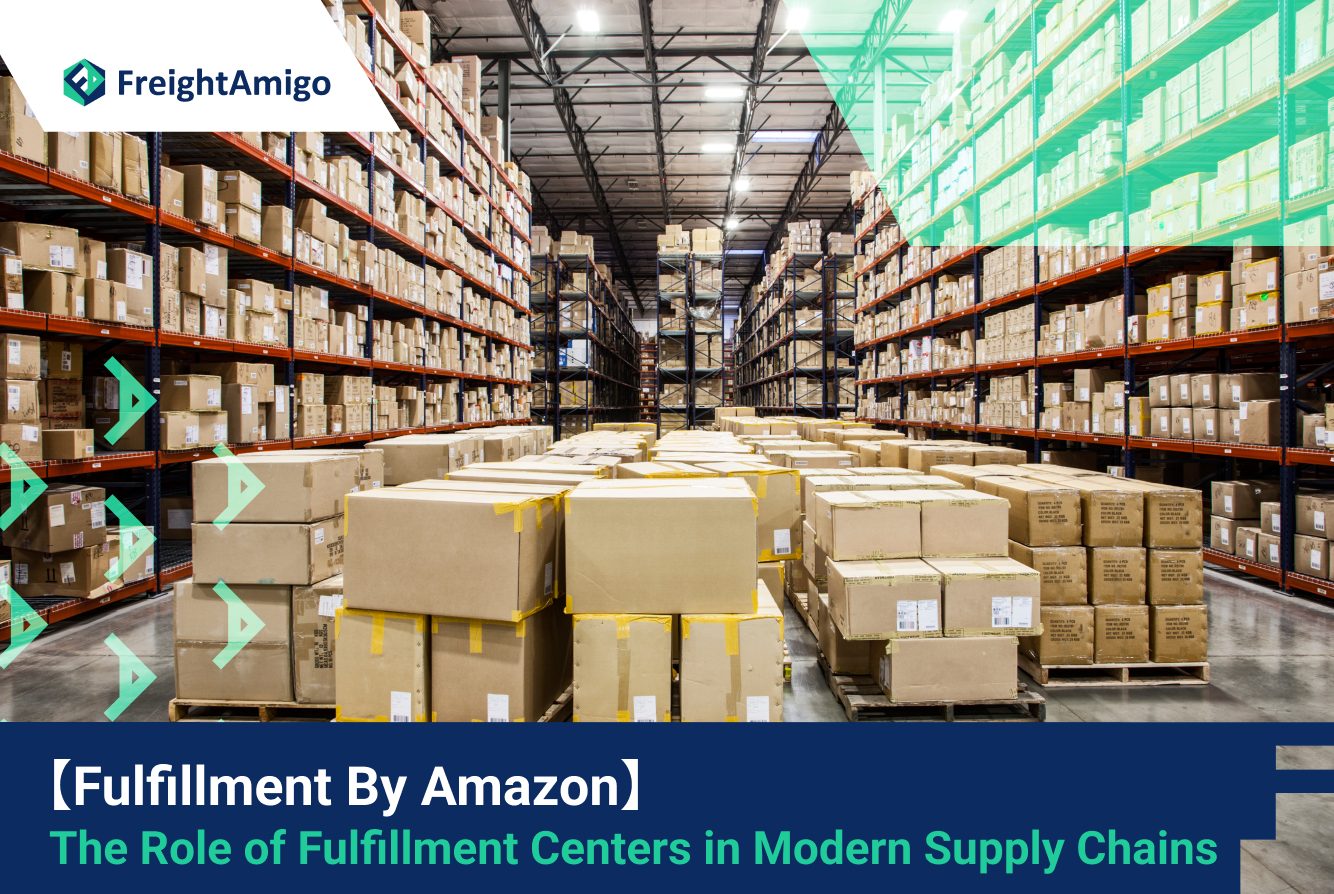Author Name: Tiffany Lee – Marketing Analyst at FreightAmigo
In today’s rapidly evolving business landscape, fulfillment centers play a crucial role in ensuring efficient and seamless supply chain management. Whether you’re a startup or an established organization, understanding the functions and benefits of fulfillment centers is essential to meet the increasing demand for online orders. This article provides valuable insights into how fulfillment centers work, their significance in the supply chain, and the advantages they offer to businesses.
Want To Compare The Best Express, Air Freight, Sea Freight, Rail Freight & Trucking Rates So As To Have Better Control On Cost?
Introduction to Fulfillment Centers
Fulfillment centers are integral components of the supply chain, serving as the bridge between online orders and customers. These centers are designed to store products strategically, allowing warehouse workers to pick and pack orders as soon as they are received. The primary objective of a fulfillment center is to ensure that online orders reach customers quickly and conveniently, enhancing the overall customer experience.
Benefits of Fulfillment Centers
The advantages of utilizing fulfillment centers in your supply chain management are numerous. First and foremost, fulfillment centers enable businesses to scale up and down efficiently based on demand. This flexibility is particularly valuable during busy sales periods or when offering seasonal products. Additionally, fulfillment centers can provide friction-free fulfillment on demand, which is especially beneficial for companies running crowd-funding campaigns or those experiencing sudden surges in sales. By partnering with a fulfillment center, businesses gain access to the latest software and technology, including order tracking systems and state-of-the-art transportation and management tools.
Understanding Order Fulfillment in Supply Chain Management
To grasp the significance of fulfillment centers, it’s important to understand the process of order fulfillment in supply chain management. When a business works with a fulfillment center, the center’s team receives shipments of inventory and stores them in appropriate facilities based on the nature of the products. Once an order is placed, the fulfillment center processes the items, packs them, and ships them to the customers. Furthermore, fulfillment centers also handle returns, providing a comprehensive solution for businesses in managing their order fulfillment needs.
Comparing Distribution, Warehousing, and Fulfillment
Businesses that sell products online often rely on a combination of warehousing, distribution, and fulfillment to create a comprehensive supply chain system. Each of these components serves a unique purpose in the overall logistics process.
Warehousing
Warehouses serve as storage facilities for a company’s operations. They can store raw materials for delivery to manufacturers or provide unfinished components and finished products. Warehouses are designed for long-term storage, with items often remaining in storage for a significant amount of time before shipping.
Fulfillment
Fulfillment centers, on the other hand, focus on the efficient and timely processing of individual orders. They receive and store inventory, with turnover generally being more rapid than in warehouses. Fulfillment centers excel in picking, packing, and shipping products to their ultimate destination, whether it’s directly to customers (B2C) or to larger retailers (B2B).
Distribution
Distribution centers serve as the final stage in getting orders from storage in the warehouse to the end customers. They play a crucial role in ensuring the smooth flow of products through the supply chain, optimizing logistics and transportation for timely delivery.
The Advantages of Using Fulfillment Centers
Utilizing fulfillment centers offers several key advantages for businesses operating in today’s competitive market. These advantages include:
1. Cost Efficiency: Fulfillment centers allow businesses to leverage economies of scale by consolidating their order fulfillment operations. By partnering with a fulfillment center, businesses can avoid the costs associated with managing their own warehouse and staffing fulfillment teams. Additionally, fulfillment centers can negotiate lower shipping rates with carriers, resulting in cost savings for businesses.
2. Inventory Management: Fulfillment centers provide advanced inventory management systems that allow businesses to track and manage their inventory in real-time. This level of visibility ensures accurate stock levels, reduces the risk of stockouts, and enables businesses to make data-driven decisions regarding inventory replenishment and forecasting.
3. Scalability: Fulfillment centers offer businesses the flexibility to scale their operations according to demand fluctuations. During peak seasons or promotional campaigns, fulfillment centers can handle high order volumes efficiently, ensuring timely delivery to customers. This scalability allows businesses to meet customer demands without worrying about capacity constraints or the need for additional resources.
4. Improved Customer Experience: By partnering with a fulfillment center, businesses can enhance the overall customer experience. Fulfillment centers focus on timely order processing, accurate picking and packing, and efficient shipping, resulting in faster delivery times and improved customer satisfaction. Additionally, fulfillment centers often offer value-added services such as custom packaging and branded inserts, further enhancing the customer experience.
5. Global Reach: Fulfillment centers with a widespread network of facilities enable businesses to reach customers around the globe. By strategically locating fulfillment centers in key markets, businesses can reduce shipping distances and transit times, ensuring faster delivery to international customers. This global reach opens up new growth opportunities and expands the customer base for businesses.
The Future of Fulfillment Centers
As technology continues to advance, fulfillment centers are poised to play an even more vital role in modern supply chains. Automation and advanced inventory management software are revolutionizing the fulfillment process, improving efficiency, accuracy, and speed. This allows for greater integration between distribution and fulfillment capabilities, enabling businesses to optimize their operations and provide an exceptional customer experience.
Sustainability is also becoming an important consideration for fulfillment centers. Locating facilities near major urban areas reduces transportation emissions and promotes greener logistics practices. Additionally, fulfillment centers are increasingly implementing initiatives to reduce packaging waste and improve energy efficiency, aligning with the growing demand for environmentally conscious supply chain solutions.
Conclusion
Fulfillment centers are integral to modern supply chain management, providing businesses with the tools and capabilities to meet the demands of ecommerce and global markets. By leveraging the benefits of fulfillment centers, businesses can streamline their order fulfillment operations, enhance the customer experience, and achieve cost efficiencies. As technology continues to advance, the role of fulfillment centers will continue to evolve, driving innovation and shaping the future of supply chain management.
There Are Different Options For Cargo Transportation. If You Want To Choose The Most Convenient And Suitable Solution, It Is Best To Have The Full Support Of Logistics Experts! If You Are Planning To Ship Goods Overseas, Please Go To The FreightAmigo Page For Inquiries.
===
Read More:
【Export of USA】 A Gateway to Success and Global Economic Influence
The Key Trade Partners of the USA: Boosting International Commerce
【Export of USA】 US-China Trade War’s Influence on USA’s Export Industry
===
If you have any inquiries on logistics/supply chain, feel free to contact FreightAmigo now:
Chat with us online OR
Phone : +852 28121686
WhatsApp: +852 27467829



